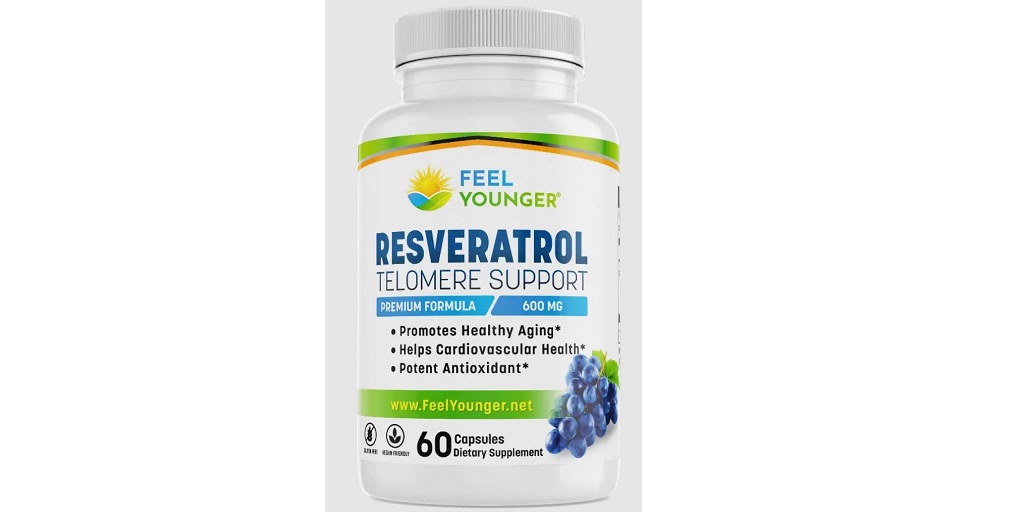You may come across resveratrol for sale touted for its purported anti-aging benefits. Resveratrol supplements are believed to provide support to a wide range of body systems and functions. Here’s what you need to know.
What Is Resveratrol?
Natural resveratrol is a polyphenol, a powerful antioxidant compound that naturally occurs in the skin of grapes (and thus in red wine), as well as in peanuts, soybeans, and many other plants and berries. In these plants, resveratrol protects the plant against fungal and bacterial infection.
However, the compound is often isolated from these plants, and administered as a supplement that reduces oxidative stress incurred by free radicals and provides “telomere support.”
What Are Telomeres?
Before cell division, the genetic material contained within the cell’s nucleus separates into packeted bundles known as chromosomes.
The ends of these chromosomes contain distinct packets of genetic material known as telomeres. Since these are outliers at the ends of the chromosomes, they are most subject to mechanical and chemical stresses.
These telomeres protect genetic material further away from the ends of the chromosomes, but over time, oxidative stress, inflammation, and other factors can cause “telomere shortening.”
Progressive shortening of telomeres can cause cell death, aging that compromises a cell’s ability to divide successfully, and oncogenic transformation which can adversely affect cell survival and contribute to the formation of diseases.
What Are the Benefits of Resveratrol-Based Telomere Support?
There is evidence to suggest that resveratrol may provide “telomere support,” helping to slow down progressive telomere shortening during cellular division.
One study, conducted in 2009, suggested that resveratrol may potentialize antitumoral activity in rat cells, helping to prevent the proliferation of cancerous cells.
More directly (and more relevant to humans), a separate study in 2017 suggested that resveratrol inhibited mRNA expression of a human telomerase reverse transcriptase (hTERT), an enzyme that lengthens telomere strands and prevents cellular senescence.
Specifically, this test was performed on human glioblastoma cells, in which case inhibiting the transcription factor is a positive thing – it helps to suppress the rampant spread of cancerous cells.
In addition to potentially providing telomere support, resveratrol limits oxidative stress that can damage DNA, organelles, and other biochemical macromolecules necessary for cell health and proliferation.
Resveratrol may also activate sirtuin 1, an enzyme that helps to regulate and even reverse epigenetic alterations in cells that can manifest as cellular senescence. Preventing or reversing these epigenetic alterations to general material can potentially help forestall aging and complications that arise as a result.
In addition to these purported anti-aging benefits, resveratrol is often also used because it is believed to:
● Support overall cardiovascular health, mediate blood pressure, and regulate cholesterol levels
● Serve as an anti-inflammatory agent
● Support cognitive function and overall brain health
● Provide joint support and alleviate joint pain
Where Can You Find Resveratrol for Sale
If you’re interested in learning more about resveratrol for sale, visit FeelYounger.net. They carry 600mg resveratrol capsules that consist of 50% trans-resveratrol and are all-natural, antibiotic-free, gluten-free, sugar-free, lactose-free, vegan-friendly, and have no fillers or binders.
Visit their website via the link above to learn more or contact them directly at [email protected].



